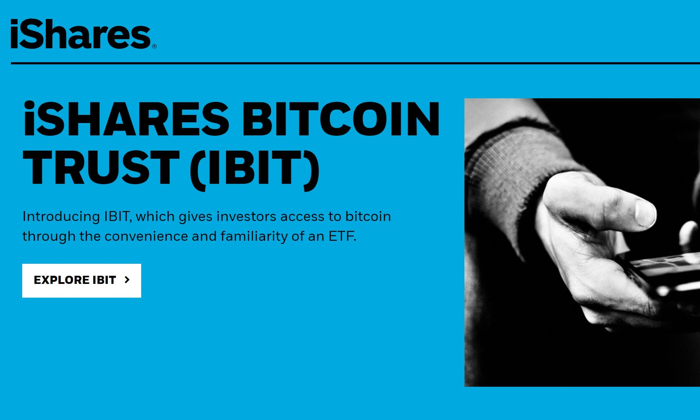The recent developments in OCC crypto regulations mark a significant turning point for the financial landscape in the United States, allowing national banks to actively engage in various crypto asset activities. On May 13, the Office of the Comptroller of the Currency (OCC) officially lifted long-standing restrictions, facilitating banks’ participation in crypto custody and trade execution, thus paving the way for comprehensive digital asset services. This crucial policy shift aligns with the increasing demand for cryptocurrency among the American population, which has surpassed 55 million users. With the market now valued at around $3.33 trillion, these regulations are positioned to spur competition in the field, challenging fintech firms that have previously dominated. As national banks adapt to this new environment, the implications for crypto regulations in the US are profound, promising a more integrated financial future.
The recent OCC cryptocurrency oversight updates have transformed the regulatory framework surrounding digital currencies and their adoption by traditional banks. By authorizing national banks to engage in a diverse range of digital asset activities, the Office of the Comptroller of the Currency has removed previous barriers that hindered crypto adoption. Such regulatory flexibility signals a significant evolution, empowering financial institutions to provide crypto custodial services and engage in trading, thereby aligning with global standards. As customer interest in cryptocurrencies continues to surge, this new era of regulatory clarity will enable banks to innovate within their offerings and attract a tech-savvy client base. The evolving landscape sets the stage for a competitive synergy between established financial entities and emerging crypto firms, reshaping the future of finance.
Understanding OCC Crypto Regulations and Their Implications
The recent updates from the Office of the Comptroller of the Currency (OCC) represent a transformative shift in the regulatory landscape for national banks regarding crypto-asset activities. By officially authorizing national banks to engage in a wider array of crypto activities, the OCC has mitigated longstanding uncertainties that previously hindered financial institutions’ involvement in digital assets. This change opens paths for banks to provide crypto custody services, execute trades based on client directives, and utilize third-party digital asset service providers, aligning with existing risk management protocols.
These regulatory enhancements spearheaded by the OCC are designed not only to promote innovation in financial services but also to ensure that banks’ operations remain safe, sound, and compliant with traditional banking standards. As the demand for crypto services rises among consumers—which is reflected in surveys indicating that millions of Americans are now crypto owners—the OCC’s move signals a long-term commitment towards the integration of digital assets into the heart of the U.S. banking system. By doing so, the OCC aims to establish a robust framework that supports the evolving landscape of crypto regulations in the United States.
The Role of OCC Crypto Custody in National Banking
OCC crypto custody initiatives signify a strategic leap for national banks as they can now safely handle customer crypto assets and offer a defined structure for executing related transactions. This newfound authority not only allows banks to act as custodians of digital currencies but also enables them to engage in critical activities like buying and selling these assets as per client instructions. Such capabilities bring traditional banks closer to competing against fintech firms that have dominated the crypto landscape, especially in aspects like transaction fees and customer loyalty.
As the OCC sets the framework for crypto custody, banks must also navigate an intricate array of compliance requirements, particularly concerning anti-money laundering (AML) regulations. Ensuring their operational frameworks align with the latest guidance while avoiding regulatory pitfalls presents a unique challenge, but it is essential for instilling trust with customers. The effective migration of banks into this digital asset space depends significantly on their operational readiness to manage and secure these new asset classes as they transition from traditional banking into the realm of digital currency.
Navigating the Future of Digital Asset Services in the U.S.
The passage of the OCC’s regulatory changes marks a crucial point for the future of digital asset services within the U.S. financial system. With national banks poised to offer a suite of cryptocurrency services, there’s a broader opportunity for traditional institutions to reclaim a share of the rapidly growing digital finance market. By providing established clients with reliable access to crypto services, banks can secure transaction revenues and strengthen customer retention, which has become increasingly vital in a landscape traditionally dominated by crypto-native firms.
Moreover, as banks adopt digital asset services, they must balance innovation with compliance, and prioritize the robust development of internal systems that handle digital asset transactions. This includes integrating wallet management solutions, advanced security measures, and streamlined customer service protocols to address the unique challenges posed by cryptocurrency. As these institutions evolve to accommodate the growing demands for crypto services, their approach will likely shape the overall footprint of digital asset integration across the U.S. banking sector.
Compliance and Risk Management in Crypto Activities
With the OCC’s updates formally enabling national banks to engage in crypto asset activities, compliance takes center stage in the operational transition. As outlined in the Interpretive Letters, banks are expected to adhere to strict anti-money laundering (AML) policies and maintain rigorous risk management standards. Failure to do so could expose these institutions to financial and reputational risks that could overshadow the benefits of entering the crypto market.
An essential aspect of compliance is the management of private keys, which represent the lifeblood of digital asset security. While the OCC has encouraged banks to explore crypto services, the lack of specific guidance on key management remains a critical challenge. National banks will need to develop comprehensive strategies that encompass customer protection, secure storage solutions for digital assets, and a proactive approach to adhering to evolving regulations, ensuring they not only protect their interests but also uphold the integrity of the banking system.
The Competitive Landscape: Traditional Banks vs. Crypto Firms
The competitive dynamics in the financial sector are undergoing a significant transformation as traditional banks gain the regulatory green light to enter the crypto space. With the support of the OCC, these institutions are now positioned to offer comprehensive services that can challenge the dominance of existing crypto firms. Given that consumer trust remains higher for established banks—especially following the turbulence of 2022—traditional financial institutions have a unique opportunity to harness their existing customer relationships to introduce trusted digital asset services.
However, competition won’t come without its hurdles. Legacy banks must act swiftly and efficiently to turn regulatory permissions into market-ready services. Close attention to customer needs, along with a fast-paced technological adaptation, will dictate which banks are successful in this burgeoning arena. As institutions look to innovate and deliver value in the crypto landscape, partnerships with fintech companies or investing in proprietary technologies may become critical strategies to outpace crypto-native competitors.
The Impact of OCC’s Policy on U.S. Financial Innovation
The OCC’s alterations to its regulatory stance represent a pivotal moment for financial innovation in the U.S. By dismantling previous restrictions, the agency is allowing banks to engage more fully with digital asset services, augmenting the financial sector’s capacity for innovation. The convergence of regulatory support and increasing consumer interest creates fertile ground for the emergence of advanced financial products and services that incorporate blockchain technology and cryptocurrencies.
This policy evolution poses significant implications for financial institutions and their strategy toward future services. As banks embrace these changes, there will likely be a ripple effect throughout the industry, with other regulatory bodies, like the SEC and CFTC, further clarifying their positions on crypto assets. The direct engagement of national banks with digital asset activities may inspire a broader array of services aimed at various customer segments, enhancing overall financial inclusivity.
Adapting to New Legal Frameworks for Cryptocurrency
The shift in OCC regulations is a crucial development within the legal frameworks surrounding cryptocurrencies in the U.S. By providing clearer guidelines around crypto custody and trading, the OCC has removed several barriers that previously constrained banks’ operations. However, as banks step into this domain, they must also contend with an ambiguous legal landscape regarding the classification and regulation of various digital assets, as ongoing debates between the SEC and CFTC continue to unfold.
As regulatory clarity develops, banks will need to remain agile, adjusting their legal compliance strategies to accommodate any forthcoming rules surrounding digital currency classifications. This will require a comprehensive understanding of both federal and state-level regulations, ensuring that national banks not only remain compliant but also leverage these new guidelines to optimize their crypto-service offerings effectively.
Customer Trust: Critical for Crypto Adoption in Traditional Banking
Amidst the evolving landscape of crypto regulations, customer trust emerges as a fundamental pillar for the successful integration of crypto services by national banks. As traditional institutions venture into the dynamic world of digital assets, instilling confidence among existing and prospective customers will be crucial. Many consumers are still wary of cryptocurrency due to ongoing scams and market volatility, which accentuates the need for robust security measures and transparent operations within banking protocols.
National banks must capitalize on their established reputations by emphasizing their commitment to safeguarding digital assets, while also educating customers about the benefits and risks associated with cryptocurrency. With millions of Americans now owning cryptocurrencies, banks have the opportunity to play a pivotal role in shaping customer perceptions and facilitating their journey into the world of digital finance, thereby paving the way for broader acceptance and usage of crypto assets.
Preparing for the Future: Long-Term Strategies for Banks
Looking ahead, national banks will need to develop comprehensive, long-term strategies to integrate crypto asset activities smoothly into their business operations. This encompasses everything from technology investments and training staff to handle digital assets effectively, to creating outreach programs that engage consumers and foster understanding of crypto services. As the market matures, the ability to anticipate changes and adapt to emerging trends will be vital for maintaining a competitive edge.
Furthermore, banks should consider collaboration opportunities with fintech firms to enhance their crypto offerings. By leveraging technological advancements in blockchain and digital asset management, banks can create unique products that attract new customers and retain existing ones. As financial institutions gear up for the future of banking, they must remain vigilant about regulatory developments and consumer concerns, ensuring that they evolve in tandem with the shifting dynamics of the digital asset landscape.
Frequently Asked Questions
What are the recent OCC crypto regulations for national banks?
The recent OCC crypto regulations authorize national banks to engage in a wide range of crypto-asset activities, allowing them to offer crypto custody, execute trades at customer direction, and outsource digital asset services, thereby eliminating previous regulatory ambiguities.
How does OCC crypto custody work for national banks?
OCC crypto custody enables national banks to manage cryptocurrencies on behalf of clients, allowing them to buy and sell digital assets held in custody when directed by clients, while ensuring compliance with established risk management standards.
What is the role of the OCC in regulating crypto asset activities?
The OCC oversees crypto asset activities by providing clear guidance and authorization for national banks to engage in various cryptocurrency services, reinforcing the safety and soundness of financial operations in the evolving digital asset landscape.
How do the OCC’s Interpretive Letters impact crypto regulations in the US?
Interpretive Letters 1183 and 1184 from the OCC significantly impact crypto regulations by revoking previous restrictions and expanding the capabilities of national banks to provide crypto custody and other digital asset services, paving the way for broader adoption of crypto in traditional banking.
What is the significance of the OCC’s recent policy shift for digital asset services?
The OCC’s policy shift signals a regulatory acceptance of digital asset services within the U.S. banking system, allowing national banks to compete in the crypto market and cater to the growing demand for cryptocurrency among consumers.
Will the OCC’s crypto custody regulations ensure customer asset protection?
While the OCC’s regulations allow for crypto custody, it is important to note that the FDIC does not insure digital asset holdings, meaning customer asset protection is a significant consideration that national banks will need to address in their communications.
How long may it take for national banks to fully implement OCC crypto regulations?
Industry estimates suggest that major national banks may take six to twelve months to fully implement OCC crypto regulations, integrating necessary infrastructure like wallet systems and anti-money laundering (AML) measures for effective crypto asset management.
What challenges do national banks face in complying with OCC crypto regulations?
National banks face challenges such as developing robust compliance structures, managing regulatory uncertainties, and addressing the complexities of private key management, which are critical for securely handling crypto assets.
What impact does OCC’s stance on crypto regulations have on competition in the banking sector?
The OCC’s stance on crypto regulations is expected to intensify competition between traditional banks and crypto-native firms, as banks now have a pathway to offer cryptocurrency services and regain customer trust in the wake of growing digital asset adoption.
How are the SEC and CFTC involved in shaping OCC crypto regulations?
The SEC and CFTC’s ongoing jurisdictional disputes over digital assets create regulatory gray areas that impact how OCC crypto regulations will be applied, especially regarding the classification and treatment of various tokens in the banking system.
| Key Points | Details |
|---|---|
| OCC’s New Policy | National banks are authorized to engage in various crypto-asset activities, including custody and trading. |
| Regulatory Clarifications | Announced through Interpretive Letters 1183 and 1184, the OCC revokes previous restrictions and eliminates uncertainties. |
| Alignment with the Federal Reserve | The Federal Reserve has also moved to eliminate pre-approval guidance, supporting the OCC’s crypto initiatives. |
| Market Conditions | The U.S. banking system is poised to support digital assets, reflecting a shift in customer demand with 55 million Americans owning crypto. |
| Implications for Traditional Finance | National banks have the opportunity to compete with fintech and crypto firms in custody and transaction revenues. |
| Compliance and Implementation | Banks must adhere to AML requirements, and integrating full-scale crypto services may take 6-12 months. |
| Future Outlook | Anticipated competition for custody and trading services may intensify as banks leverage customer trust. |
Summary
OCC crypto regulations represent a significant advancement in the integration of cryptocurrency services within the U.S. banking system. With the recent policy updates from the OCC, national banks are now empowered to engage in a variety of crypto-asset activities, eliminating previous regulatory ambiguities. This strategic shift is designed to meet the growing customer interest in cryptocurrencies and position traditional banks as competitive players in the digital asset landscape, especially in terms of custody and trading services. As these regulations take effect, traditional financial institutions will likely focus on implementing robust compliance measures and operational frameworks to fully capitalize on this new opportunity.
The recent OCC crypto regulations have opened the doors for national banks to actively engage in a broader spectrum of crypto-asset activities, marking a significant shift in U.S. financial policy. On May 13, the Office of the Comptroller of the Currency confirmed that these institutions can now offer crypto custody services, execute trades as directed by clients, and outsource digital asset services, aligning with rigorous risk management standards. This transformation eliminates previous ambiguities and paves the way for a more integrated approach to digital finance, responding to increasing consumer demand for cryptocurrencies. As financial institutions adapt to this evolving regulatory landscape, the implications for crypto regulations in the U.S. are profound, promising a surge in participation from national banks in the burgeoning crypto market. It’s a pivotal moment for the intersection of traditional banking and digital assets, as the U.S. banking system is now considered well-positioned to support innovative financial services in this sector.
The latest updates from the Office of the Comptroller of the Currency (OCC) signify a monumental change in the way traditional banks can interact with digital currencies and assets. By allowing these financial entities to partake in a wider range of cryptocurrency operations, including custody and trading functionalities, the OCC is effectively endorsing a new era of financial integration. This decision reflects a comprehensive reassessment of existing policies concerning financial technology service providers and their role in the digital marketplace. As banks gain the ability to expand their services into crypto asset management and digital finance, the regulatory environment is similarly evolving, fostering a landscape where banks can compete alongside crypto-native establishments. The prudent adjustments in crypto regulations emanating from U.S. authorities represent an important step towards harmonizing banking activities with the rising demand for innovative financial solutions.















